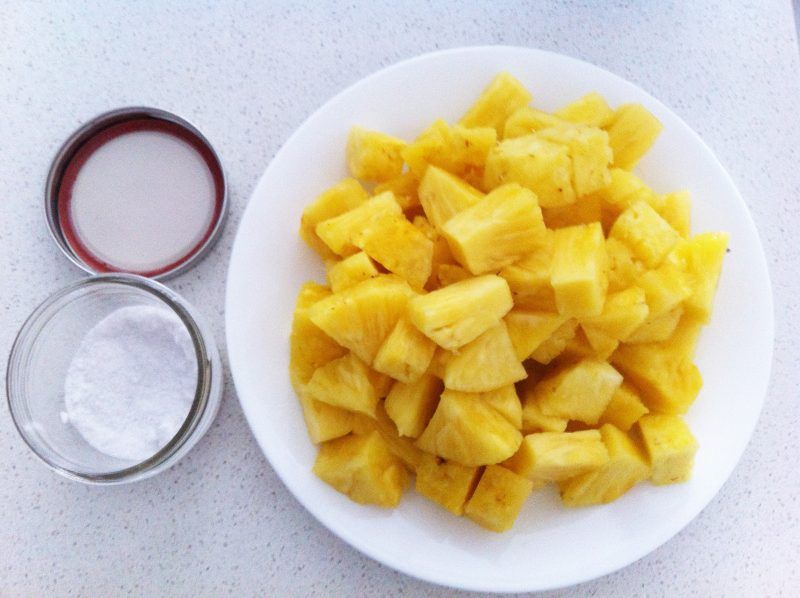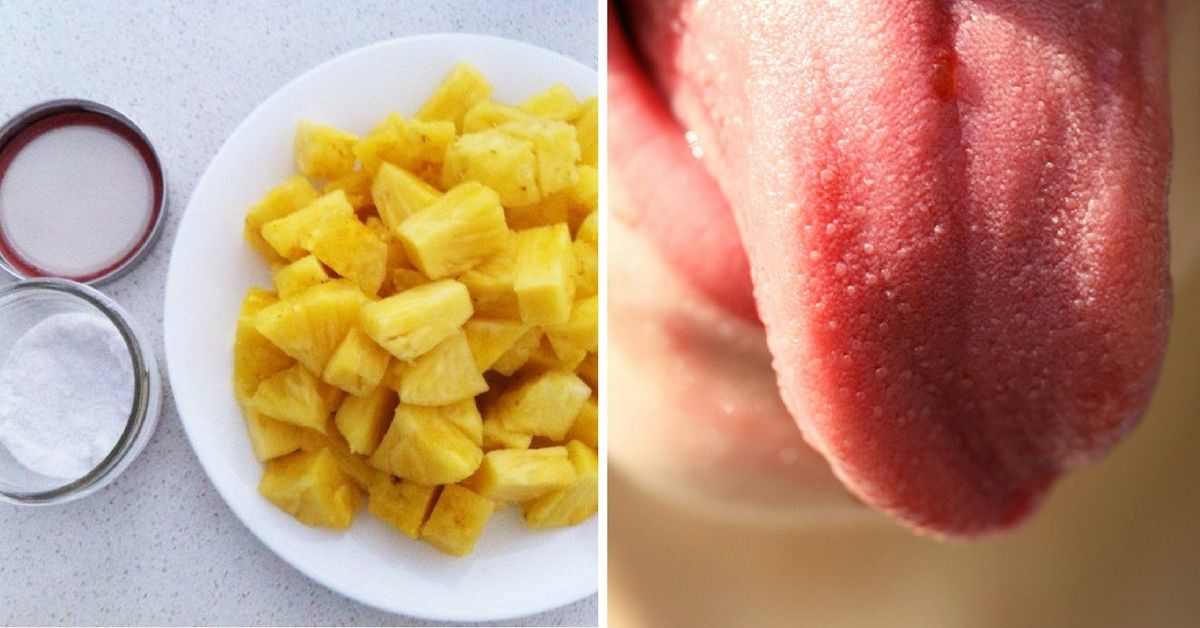I love pineapples! Not only is the fruit delicious, but whenever I eat it, my mood gets better. It takes me back to my childhood days when my family would go on vacation and spend the summer by the ocean.
While I have a lot of praise for the tropical fruit, there is unfortunately one downside to it: it stings.
If you've eaten fresh pineapple then you know that after a couple of bites, you start to feel a burning sensation on your tongue, lips, side of your cheeks, and even the roof of your mouth. Some people have been experienced bleeding after eating too much of the fruit.
Many of us have been led to believe that it's the citric acid in the yellow-fleshed fruit that causes this discomfort, and certain people even believe that this reaction is caused by allergies, but that's not really true.

Sure, citric acid does play a part, but the main reason why pineapple burns is because of bormelain, an ezyme that digests protein.
Pineapple is the only fruit that contains the enzyme, which in its isolated form is often used a meat tenderizer. So when you're eating the fruit, the bromelain is digesting the protein tissues in your mouth, including the protective mucus coating on your tongue.
Although this sounds scary, you don't have much to worry about because it won't cause permanent damage. The skin in your mouth will regenerate and heal in no time.
There are a couple of tricks you can use to avoid the burn from the fruit, but there's one top chef-approved method that trumps them all.
Since the bromelain is concentrated in the stem and core of the pineapple, you can reduce the sting by cutting out all of the core and stem before you eat it.
For those who don't mind cooked pineapple, grilling is another way to ensure that it won't hurt your mouth because heat denatures the enzyme.
However, there's one more method that many chefs swear by, and it makes a world of a difference.
On a recent episode of the Netflix food show Ugly Delicious, Chef David Chang, founder of the popular Momufuku restaurant group, and a couple of guest star chefs revealed that salt water can lessen the astringent taste.

All you have to do is soak the fruit in salt water for at least 30 minutes and that should stop it from causing your mouth to burn.
Some people also recommend pairing pineapple with ice cream or yogurt, so the bromelain will digest those proteins instead of the one's in your mouth.
Give this trick a try and let us know how it feels after!

